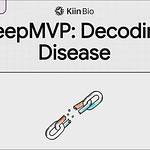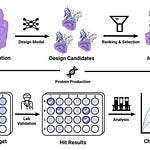Google's AI Co-Scientist is an advanced multi-agent artificial intelligence system developed on Gemini 2.0, designed to function as a virtual scientific collaborator. It assists researchers by automating and accelerating key scientific processes, significantly enhancing the efficiency and scope of scientific discovery.
Key Capabilities:
Hypothesis Generation: AI Co-Scientist generates novel, testable research hypotheses by analyzing extensive scientific literature and large datasets, uncovering patterns that might otherwise remain unnoticed by human researchers.
Literature Synthesis: It rapidly synthesizes vast amounts of scientific literature, distilling critical insights and findings, thereby drastically reducing the time researchers spend reviewing existing knowledge.
Experimental Planning: The system helps design experimental protocols by proposing innovative experiments tailored to specific research objectives, optimizing the design process through data-driven insights.
Collaborative Interaction: Scientists interact with the AI through natural language, providing seed ideas and feedback. This interaction allows iterative refinement of hypotheses and research proposals, enhancing the system's understanding and performance over time.
Self-improvement Mechanism: It employs specialized agents—Generation, Reflection, Ranking, Evolution, Proximity, and Meta-review—to iteratively evaluate and refine outputs. The system leverages self-play-based scientific debate and automated ranking tournaments (using Elo auto-evaluation metrics) to continuously enhance hypothesis quality.
Demonstrated Value:
It successfully solved complex scientific problems in days that previously took scientists years or even decades to resolve. For example, it tackled a longstanding "superbug mystery" in two days, significantly accelerating biomedical discoveries.
Researchers at institutions like Imperial College London and Stanford University have validated its effectiveness. At Imperial College, it independently proposed mechanisms related to antimicrobial resistance that aligned with years of laboratory research. Similarly, Stanford researchers confirmed its suggested drug candidates for liver fibrosis through laboratory experiments.
Core Value of the Tool:
The primary value of Google's AI Co-Scientist lies in its ability to substantially accelerate scientific discovery by automating labor-intensive tasks such as literature review, hypothesis generation, and experimental design. It enhances human creativity by identifying novel connections and insights from vast data sets while maintaining a collaborative approach—supporting rather than replacing human researchers in their work.











